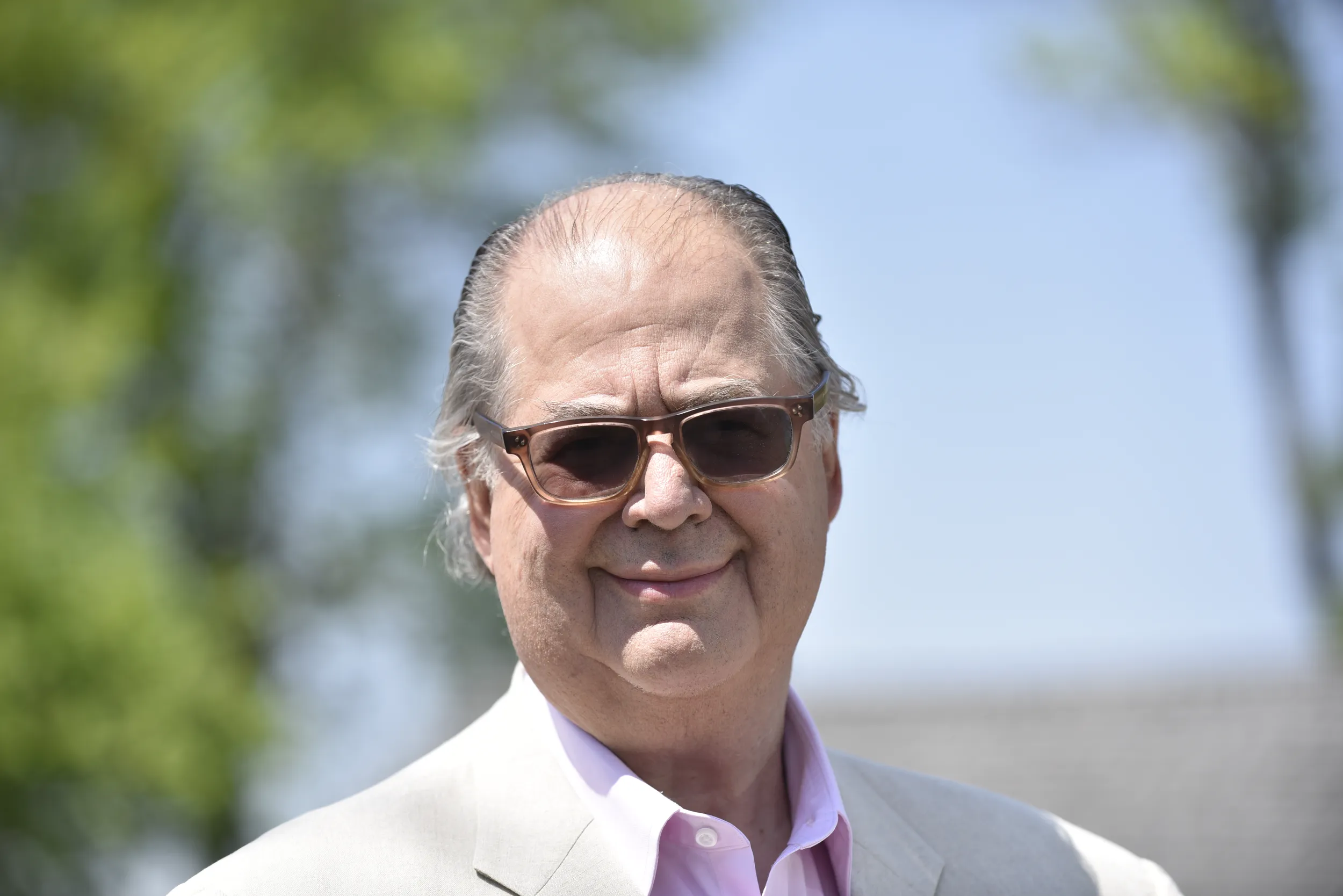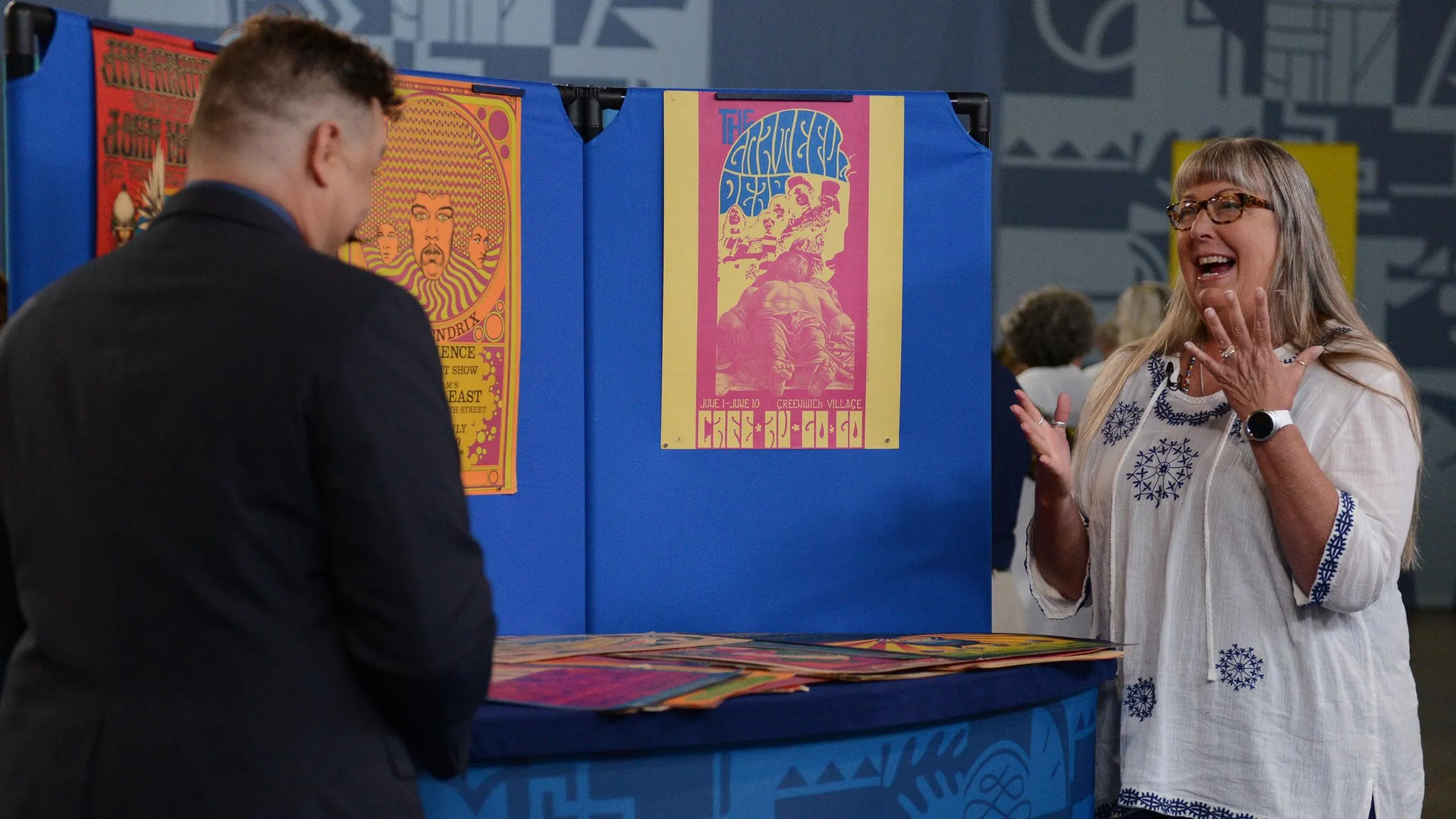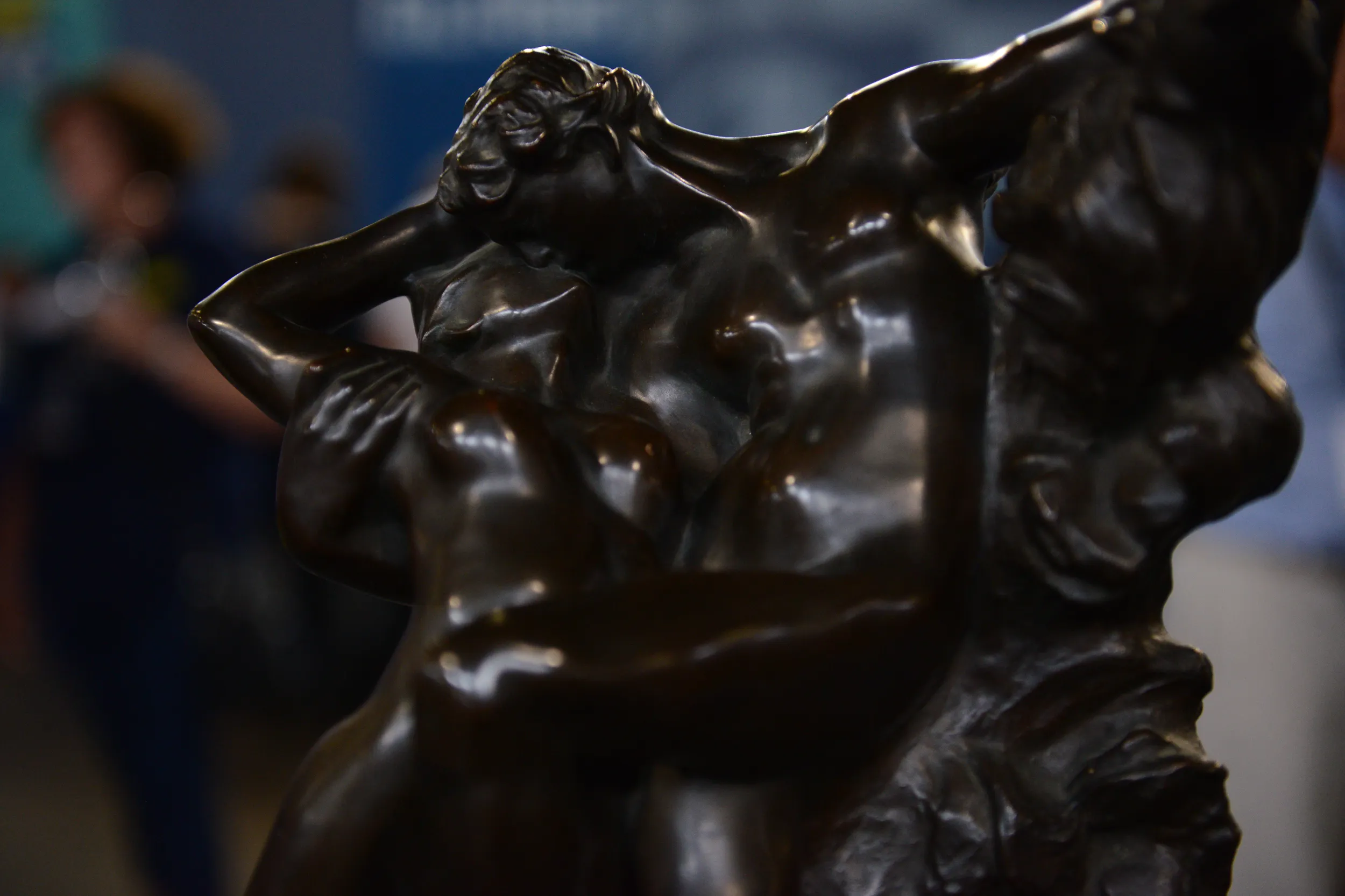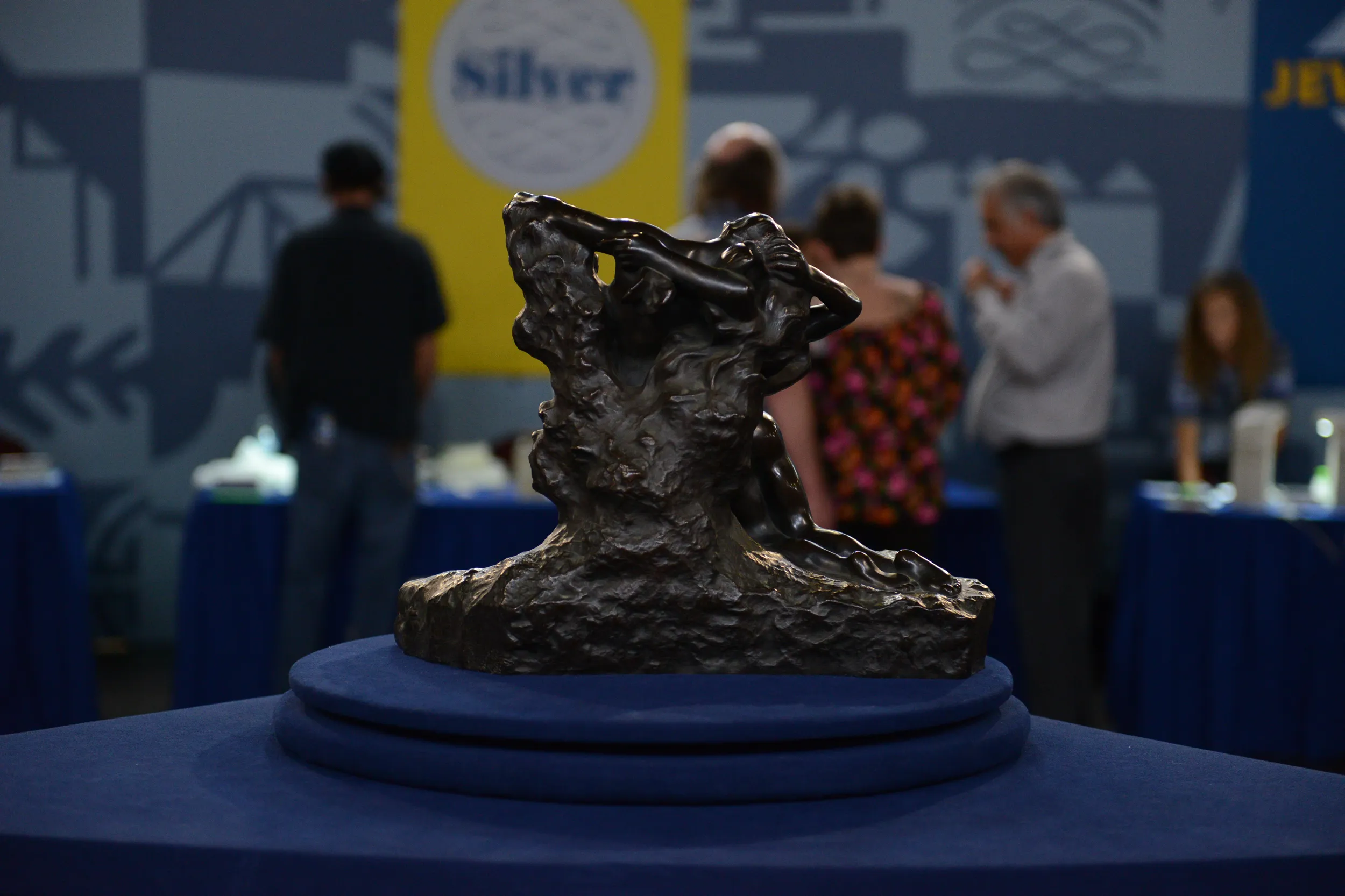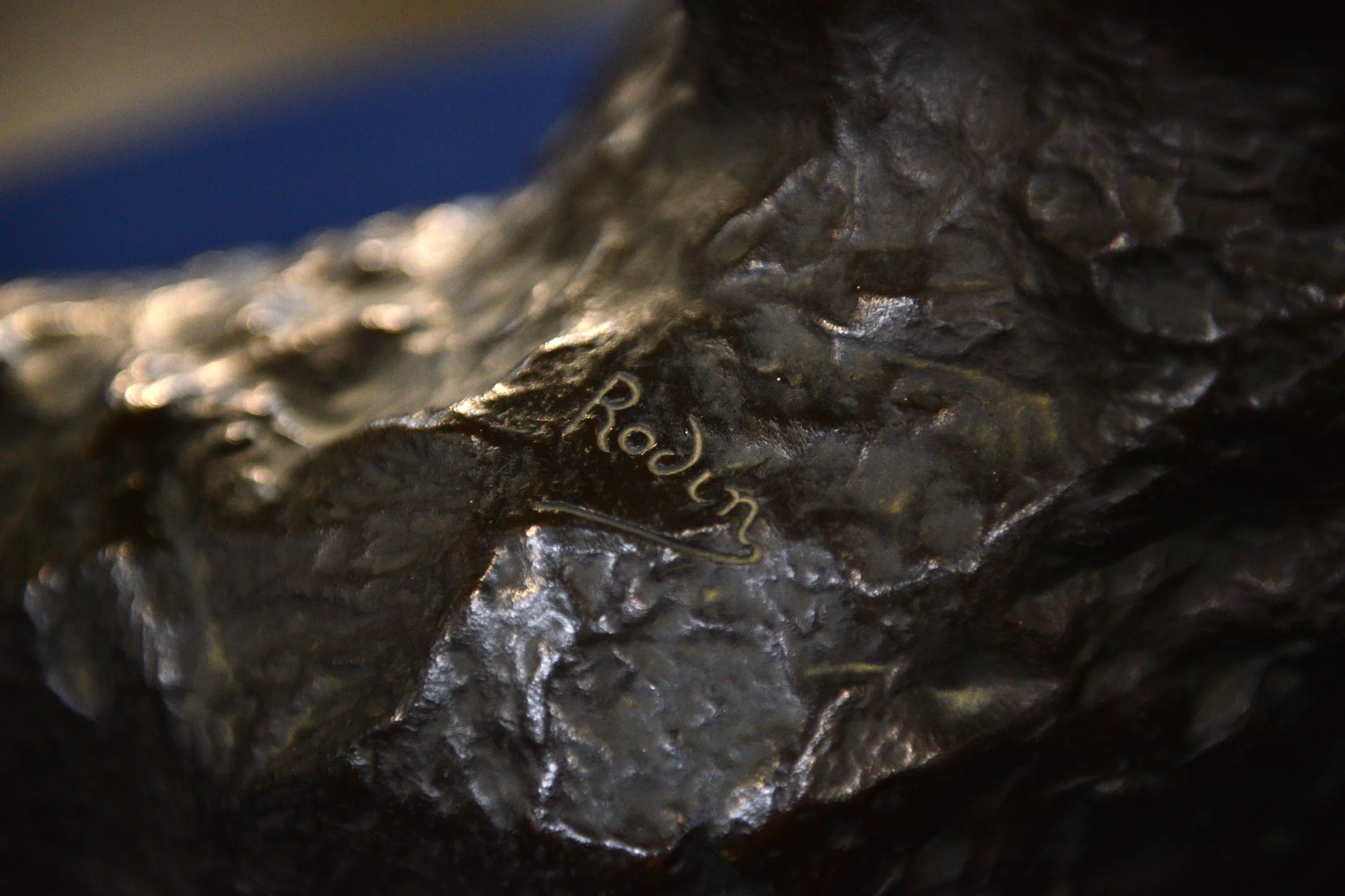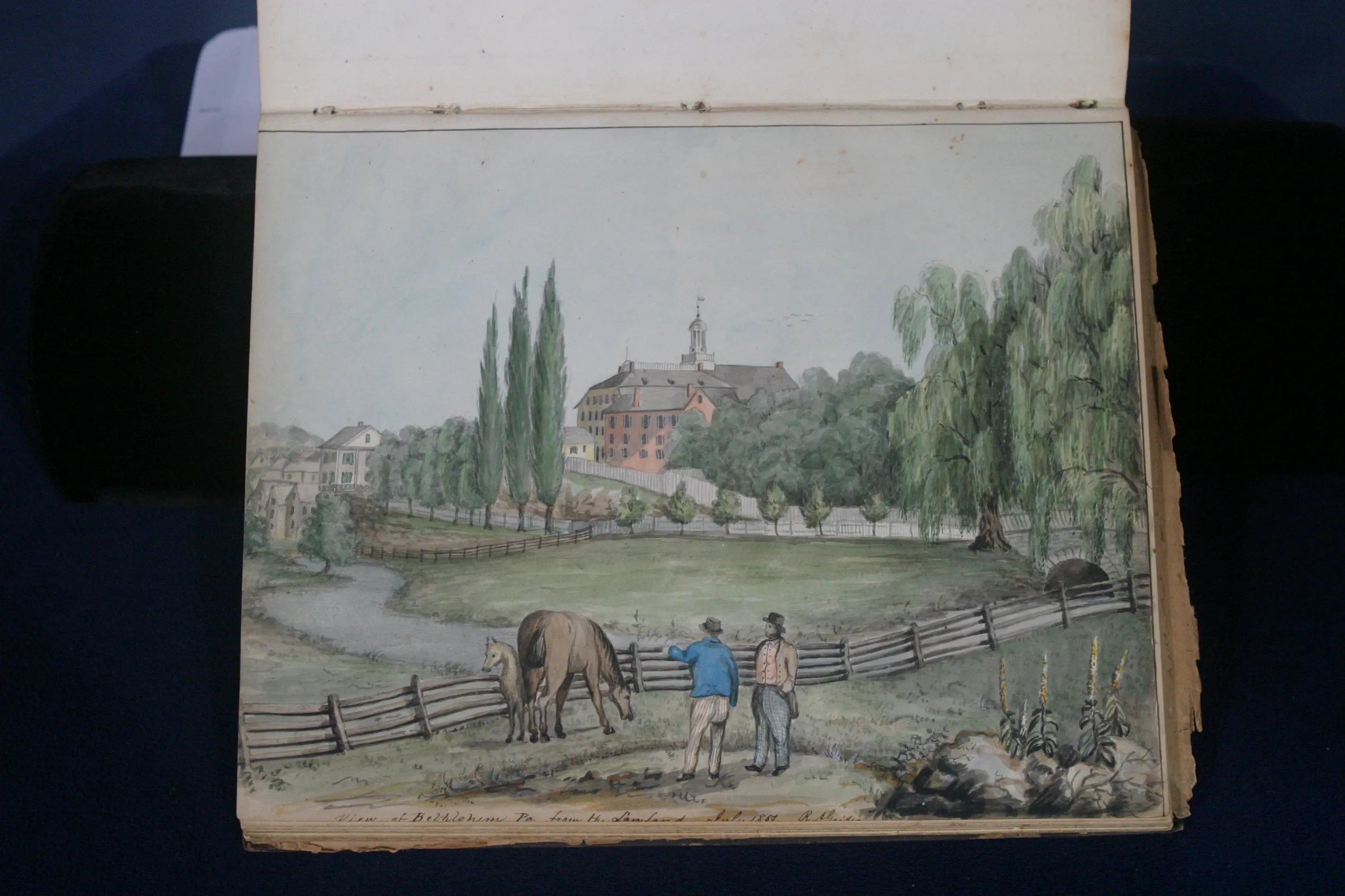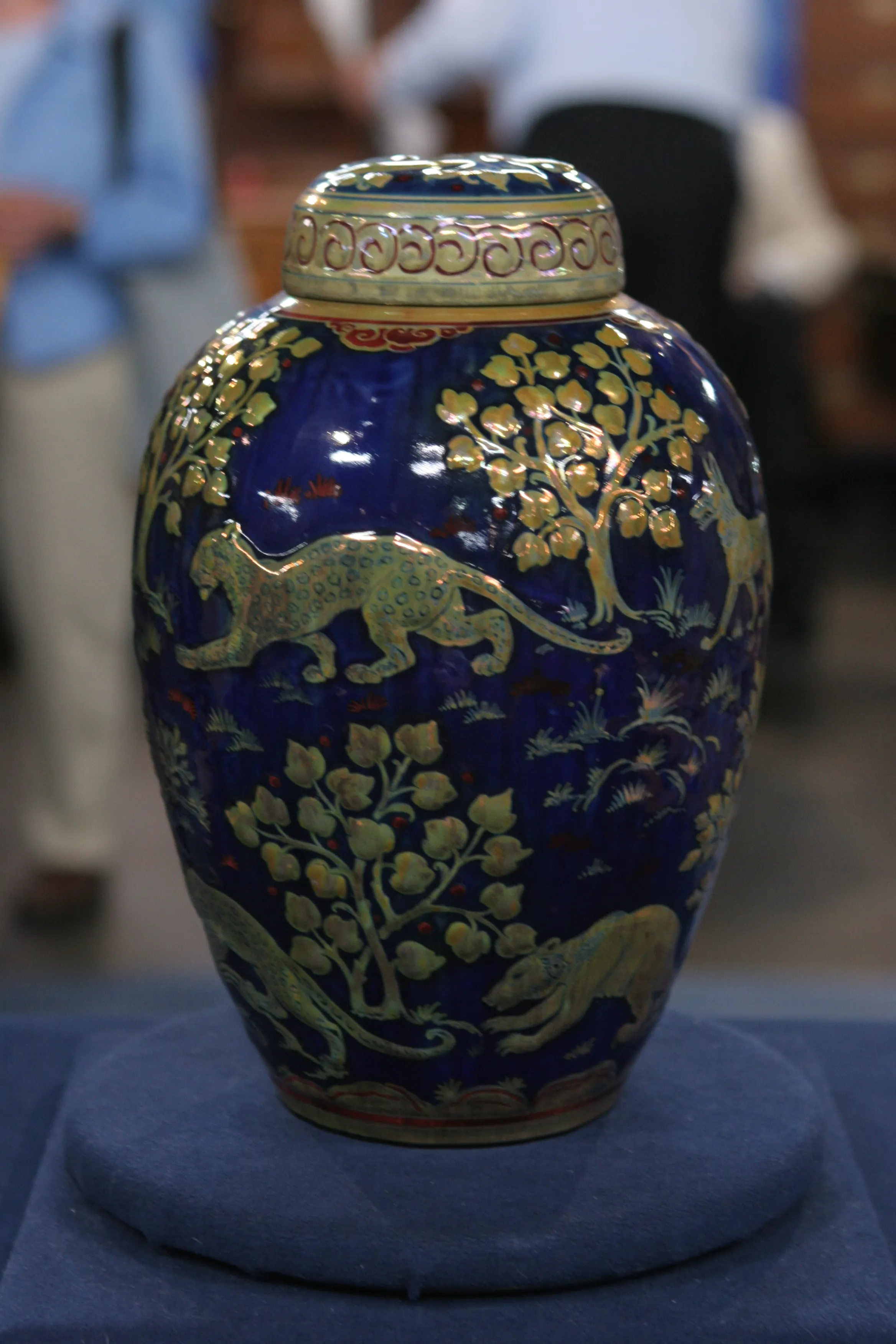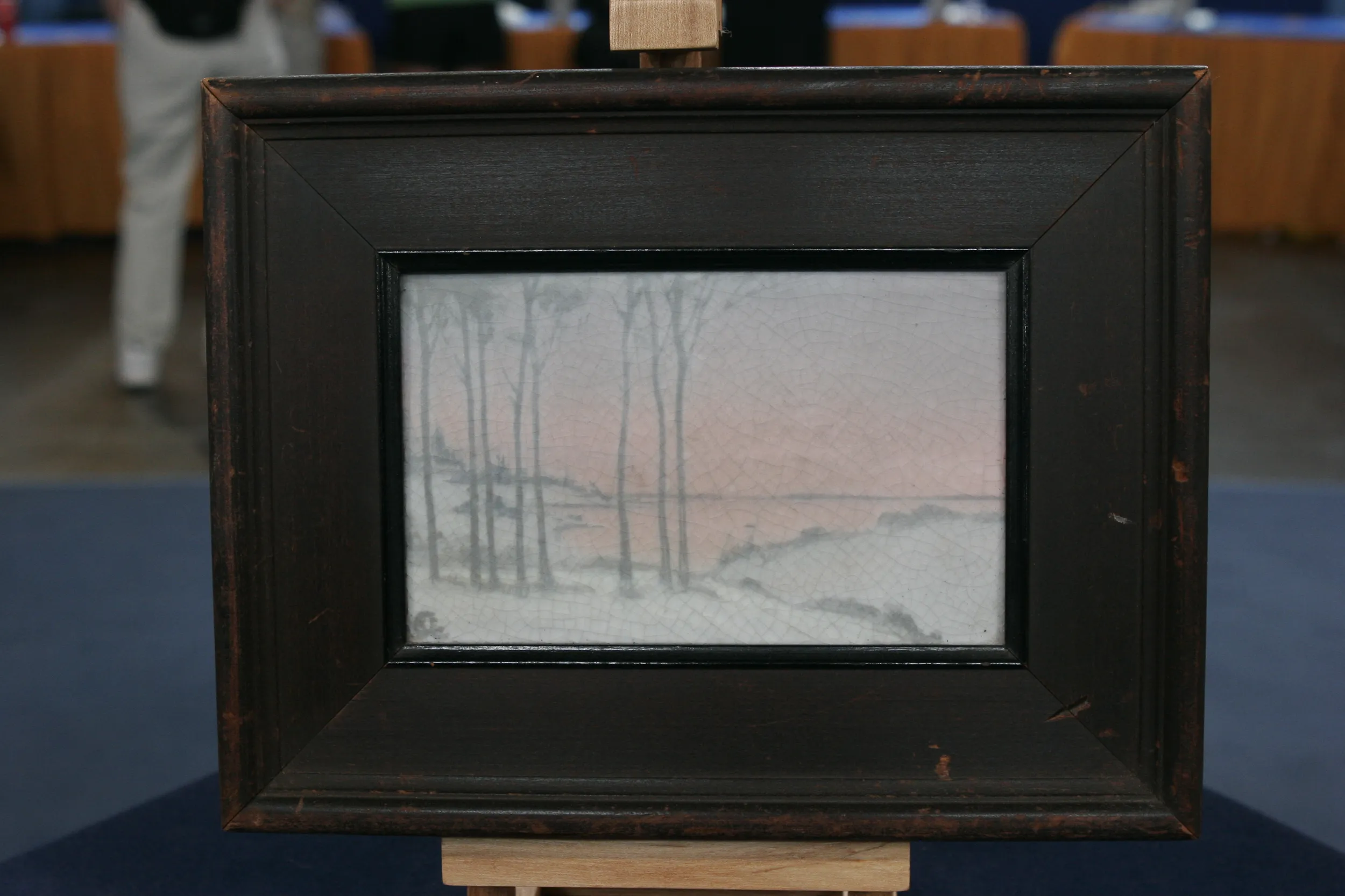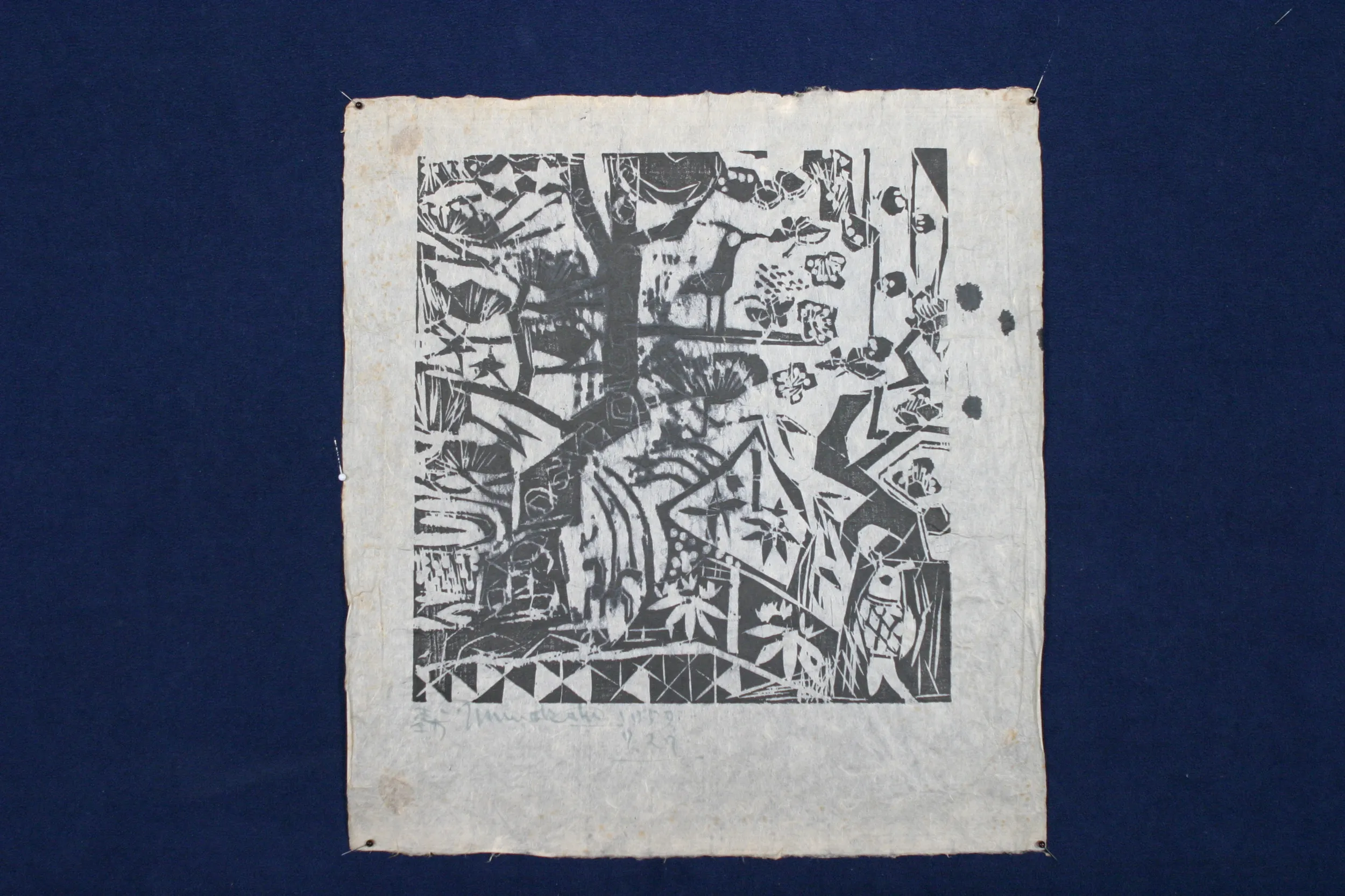GUEST: It was my father's great-aunt's sculpture, and when she died, it came to my grandmother, and when my grandmother died, it came to my father, and he has since given it to me.
APPRAISER: And you know the artist?
GUEST: Rodin.
APPRAISER: Who's Rodin?
GUEST: Auguste Rodin, I didn't want to mess up his name.
APPRAISER: And you know the title?
GUEST: It's "Eternal Spring."
APPRAISER: Right. Of course, the original title's in French. Rodin, one of the greatest sculptors of the 19th, early 20th century. Some consider him comparable to Michelangelo. He was born in 1840 and he studied quite extensively. In the early part of his career, he actually did decorative sculptures and designed various useful objects and worked in the studio of another artist named Albert Carrier-Belleuse.
GUEST: Oh, okay.
APPRAISER: And then he was finally able to break out. Rodin was really an innovator. Most sculpture is of historical things, mythological things, and what he did is he actually moved the focus of sculpture onto actual people, trying to capture real emotions of people. One of his first sculptures was called "The Age of Bronze," and he was criticized. People thought he made a cast of a person, and that was his sculpture. So his early work was highly criticized. His work is very popular, and the issue with sculpture is when it was made and whether or not it was made under the auspices of the artist himself.
GUEST: Right.
APPRAISER: And that determines the value. Artist-produced editions of these bronzes, they never put a number on them. The idea of numbering an edition of five or ten is a relatively new phenomenon. He cast them as they were made, and he licensed the foundry to produce these pieces. So you can see here... It's actually signed "Rodin." On the side here... It's signed "F. Barbedienne, Fondeur"-- Ferdinand Barbedienne, the foundry. And this was a leading foundry in France at this time. What's also interesting about this piece is that it has a letter and numbers, and these are numbers that are used at the foundry for sort of inventory control, to just keep track of what was made, when it was made. And as I said, his works are so popular that they were made in addition, you know? They would make copies. Sometimes, they would make a copy of a bronze and they just lose detail. And this, I feel, is an early cast, maybe a lifetime cast.
GUEST: Oh, wow.
APPRAISER: There's so many reproductions and fakes of his work that in order to sell one, you need a certification from a group called the Committee Auguste Rodin.
And they examine them and they issue a certificate saying that it is authentic.
GUEST: Okay.
APPRAISER: So the question becomes, is this a lifetime cast?
GUEST: That is the question, I guess.
APPRAISER: Was it done later? Was it done last week?
GUEST: I don't think last week, but...
APPRAISER: Right. My feeling is that it is an authentic period one done somewhere between 1880 and 1917 or 1918, during his lifetime or very shortly thereafter. You must get a certificate from the Committee Auguste Rodin. There's a process, there's an application form that you fill out, there's a fee involved. Right now, they charge 1,400 Euros, and in June of this year, 2016, in London, one brought $450,000.
GUEST: Wow! Wow, that... Wow! $450,000? That is amazing. Amazing.
APPRAISER: Right. So at auction, an estimate on this would be in that $400,000 to $500,000 range.
GUEST: Wow. I gotta get the heck out of Dodge here. How am I gonna...
(laughs)
GUEST: Wow.
APPRAISER: We have protection for you.
GUEST: Oh, thank you.
(laughs)
GUEST: That is incredible.
APPRAISER: If it turns out not to be an authentic authorized casting, it can be worth $5,000, maybe even $10,000 at auction.
GUEST: Wow, even for a not... a non-authenticated?
APPRAISER: Right, even as a really high-quality reproduction, it still can have substantial value.
GUEST: Wow.
APPRAISER: It's really remarkable. We actually see a lot of Rodins on the show, and every single one is a fake or reproduction. Same way we see Remington bronzes at every show.
GUEST: Every one.
APPRAISER: They're all reproductions. In the 21 years of the ROADSHOW, there's been one authentic Remington bronze, and you've probably come in with the only authentic Rodin bronze ever to come in to the show.
GUEST: Wow, that's amazing.
APPRAISER: It really is.
GUEST: I'm flabbergasted. I suddenly want a beer.
